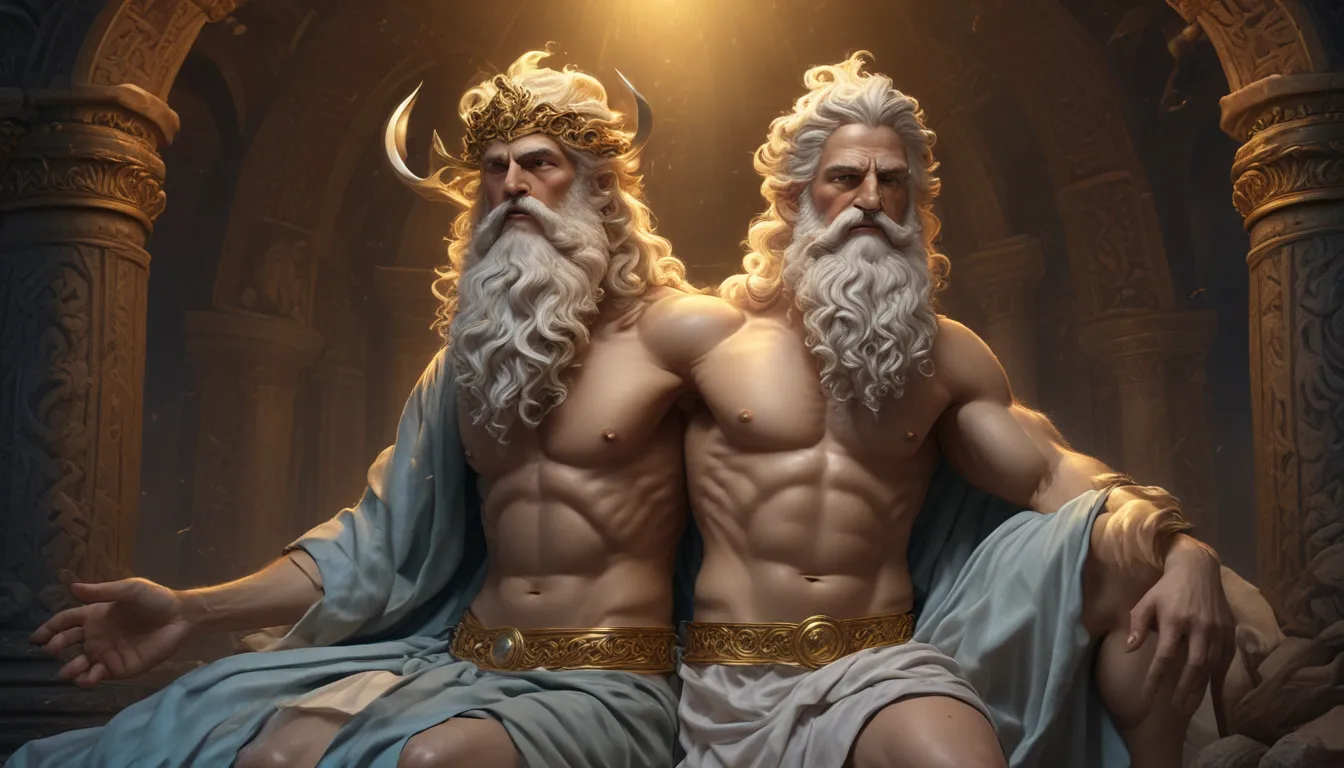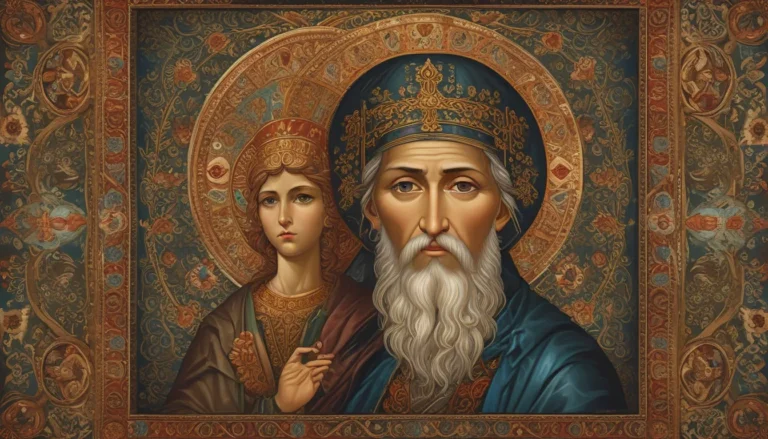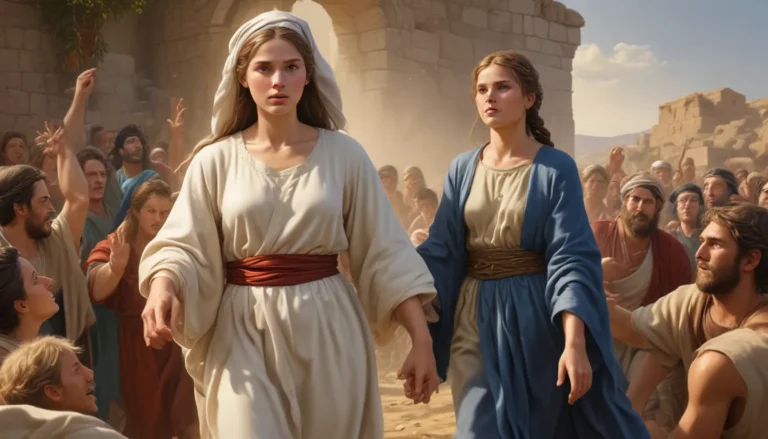The images in our articles may not match the content exactly. They are used to grab your attention, not to show the exact details in the text. The images complement the text but do not replace it.
Welcome to a captivating exploration of the mighty Greek god Zeus, the king of the gods in ancient Greek mythology. From his powerful presence on Mount Olympus to his enduring legacy in modern culture, Zeus continues to fascinate and inspire people worldwide. Join us as we uncover 34 amazing facts about Zeus, delving into his captivating persona and unraveling the impact of his mythology across the ages.
Demystifying Zeus: The King of the Gods
Zeus, the formidable ruler of Mount Olympus, exerted his authority over the heavens and the earth, embodying immense power and influence. As the son of Cronus and Rhea, Zeus emerged as a central figure in Greek mythology, revered for his control over thunder and lightning. His reign as the king of the gods shaped ancient beliefs and practices, leaving a lasting imprint on human civilization.
The Iconic Symbol: Zeus with a Thunderbolt
One of the most iconic images of Zeus depicts him wielding a thunderbolt, symbolizing his unmatched might and sovereignty over the skies. This powerful representation captured the essence of Zeus’s supremacy and reaffirmed his status as the supreme deity in Greek mythology.
The Divine Union: Zeus and Hera
Zeus’s complex relationship with his sister Hera underscored the intricate dynamics within Greek mythology. Their marriage epitomized the intertwining of familial bonds and power struggles among the gods, adding depth to Zeus’s character and the divine narrative.
Unraveling Zeus’s Many Affairs
Zeus’s numerous extramarital affairs were a testament to his multifaceted nature and the far-reaching consequences of his actions. These romantic entanglements with mortal beings showcased the complexities of his character and the profound impact on both the divine and mortal realms.
The Legacy of Demigods and Heroes
The offspring of Zeus, including legendary figures like Hercules and Perseus, embodied exceptional strength and valor, leaving an enduring mark on ancient tales and legends. Their extraordinary feats and noble deeds added richness to the tapestry of Greek mythology.
Justice and Hospitality: Zeus’s Moral Compass
Zeus was revered as the epitome of justice and fairness, upholding moral order and ensuring righteousness prevailed in the mortal and immortal realms. His commitment to justice and hospitality underscored his role as the ultimate arbiter in the divine hierarchy.
Reverence Through Ceremonies and Offerings
Ancient Greek society honored Zeus through grand festivals and sacrificial rituals, paying homage to his divine presence and seeking favor from the king of the gods. These elaborate ceremonies reflected the pervasive influence of Zeus in cultural and religious practices.
Cultural Influence of Zeus and the Pantheon
The impact of Zeus and the pantheon of gods extended across various aspects of ancient Greek culture, shaping literature, art, governance, and societal norms. Their enduring legacy continues to resonate in contemporary expressions of creativity and storytelling.
Unveiling the Mythological Tapestry of Zeus
Zeus’s myths and legends continue to captivate and inspire audiences worldwide, transcending centuries to leave an indelible mark on literature, art, and popular culture. The timeless allure of Zeus’s narratives enriches our understanding of ancient beliefs and the complexities of human existence.
Zeus’s Archetypal Role: Leadership and Authority
As the king of the gods, Zeus embodies enduring themes of leadership, authority, and power dynamics that resonate with human societies. His portrayal offers profound insights into governance, societal structures, and the complexities of leadership, reflecting timeless facets of the human psyche.
Zeus’s Enduring Presence in Artistic Expressions
The symbolism and imagery of Zeus permeate cultural and artistic expressions, showcasing the enduring relevance of mythological narratives in shaping human creativity and expression. His iconic representation in diverse mediums highlights the captivating nature of mythological themes across generations.
Linguistic Impact of Zeus’s Legacy
Zeus’s influence extends to language and idiomatic expressions, reflecting the enduring impact of mythological figures on linguistic evolution and cultural expressions. The incorporation of Zeus’s name and attributes into everyday language underscores the pervasive influence of ancient myths on communication.
Zeus in Modern Media and Entertainment
The enduring fascination with mythological narratives persists in contemporary society, with Zeus’s presence in popular media, films, and literature continuing to captivate diverse audiences. His timeless allure transcends cultures and generations, emphasizing the enduring resonance of mythological themes.
Unveiling the Enigmatic Zeus: A Legacy of Power and Myth
Zeus’s enduring legacy as the king of the gods exemplifies the profound influence of myth and divine narratives on human consciousness. His portrayal in ancient texts and artifacts offers a glimpse into the intricate interplay between human imagination, spirituality, and the eternal quest to comprehend the divine.
Conclusion: Delving Deeper into Zeus’s Mythological Realm
Zeus, the enigmatic king of the gods, continues to captivate and inspire audiences with his compelling stories and timeless influence. Exploring the myths and legends surrounding Zeus provides profound insights into ancient Greek culture, beliefs, and the enduring lessons that shape human understanding across civilizations.
Key Takeaways
- Zeus, the king of the gods in ancient Greek mythology, embodies power, authority, and enigmatic allure, leaving a lasting impact on human civilization.
- The enduring legacy of Zeus reflects the timeless fascination with leadership, authority, and mythological narratives, shaping human creativity and linguistic evolution.
FAQs
What are some famous stories involving Zeus?
Zeus is central to numerous myths, including his overthrow of his father, Cronus, and his pivotal role in the Titanomachy. His interactions with mortals and divine beings, such as the birth of Athena and the abduction of Europa, are well-known tales that highlight his influence.
How did Zeus impact ancient Greek society?
Zeus played a significant role in the religious, social, and political aspects of ancient Greek civilization as the supreme deity. His worship, festivals, and portrayal in art reflected the values and ideals of society, shaping cultural expressions and societal norms.
Our Commitment to Quality
Our dedication to providing trustworthy and engaging content drives us to ensure the highest standards of accuracy and authenticity in every fact we share. Through the collective insights of real users like you, we strive to deliver a diverse and credible wealth of information that offers both fascination and reliability. Trust in our commitment to quality as you explore the fascinating world of mythology with us.
In conclusion, Zeus’s enduring legacy as the king of the gods underscores the profound impact of myth and divine narratives on human consciousness. Through his captivating stories and timeless influence, Zeus continues to inspire and enlighten audiences across cultures and generations. Join us in delving deeper into the realm of Zeus, where myth and legend converge to offer timeless lessons and insights into the human experience.






